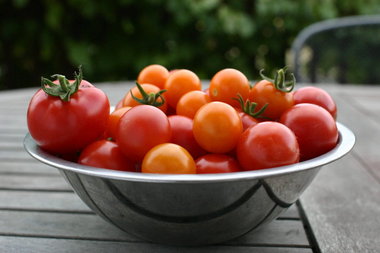Former California Secretary of Agriculture A. G. Kawamura is reconnecting with his roots. After serving as Ag Secretary for seven years, he's now growing food in Orange County. Kawamura recently told the California Farm Bureau that suburban sprawl has created opportunities for farmers in an era that sees farmland rapidly disappearing. Kawamura, a long-time proponent of urban gardens, recently said that the role agriculture will have to play in an “unpredictable future” is being defined right now by those in the agricultural field. His idea of a 21st century farmer is one who combines urbanization with agriculture by using vacant land to grow food.
Kawamura's company provides a public demonstration of this urban-farm dynamic by utilizing land within the Orange County Great Park. “We want to showcase 21st century agriculture, not agriculture from the past,” Kawamura said.
One of the biggest factors contributing to the economic insecurity of farmers this day and age comes from an over-dependence on export markets and the “global economy”. The situation is such that bureaucrats at the national level must be relied upon to make ends meet. Agricultural leaders were reminded of just how unreliable the current economic model can be late last month when they were forced to press Congress to pass several trade agreements with South Korea, Panama and Columbia. American Farm Bureau President Bob Stallman said the free-trade deals could increase U.S. farm exports by $2.5 billion a year. Representatives from the beef, pork, wheat, corn and soybean industries voiced their concern that the stalled trade agreements have allowed other countries to usurp U.S. market-share.
In local crop news, a new government report says that California tomato processors will have contracts for 12.2 million tons for 2011. As of May 16, contract acreage stood at 258,000, which is 11,000 fewer acres than 2010. Heavy spring rains have caused planting delays for processing tomato crops. Farmers are also concerned about some stunted development caused by cool weather. But, despite these minor setbacks, processing tomato growers report that their plants remain in good condition. The report notes that fuel, fertilizer, chemical and other input costs for the crop are higher than last year. Prices on canned tomato products such as pastes and sauces will rise proportionately in the coming months.
Last, rain is always welcome for residents of the arid West but for cherry growers, too much can damage crops. Storms in the Central Valley have caused a small percentage of cherries to crack from excess moisture. Cool weather following the rains should lesson the damage, farmers say.

